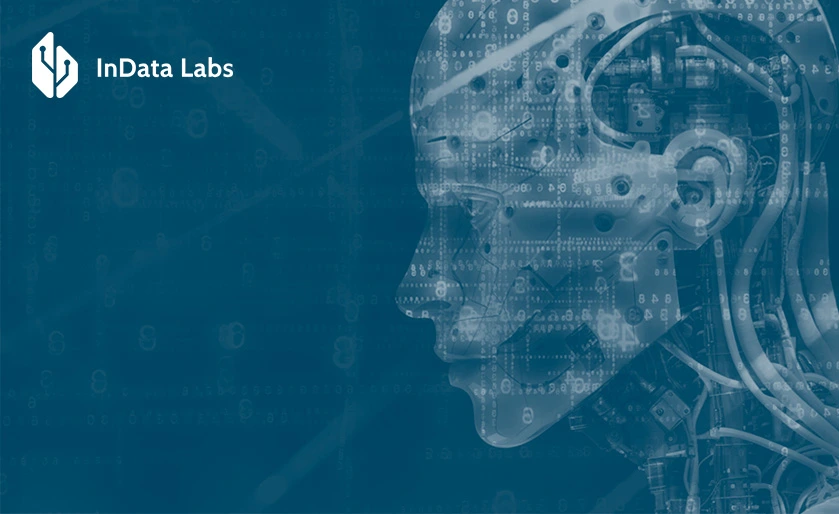The last two years have been challenging for the tech industry due to economic headwinds and recessionary budget pressures. The economic uncertainty on the horizon is going to require boards to become more selective and nuanced about technology decisions. But despite geopolitical and economic turbulence, the adoption of AI remains the silver lining in the tech landscape thanks to its immense potential in supporting business continuity and sustainable growth.
To survive and thrive, companies all over the world invest in improving supply operations, modernizing infrastructure, and leveraging growth opportunities. As a result, full-scale AI adoption is going strong across all industries, with high-performing organizations reporting results — such as cost reduction and performance gains — linking those gains to artificial intelligence and its transformational effect.
Generative AI also deserves much of the credit for renewing enthusiasm for artificial intelligence. Having taken the market by storm, it is poised to solve business-specific challenges and unlock more automation opportunities for global organizations.
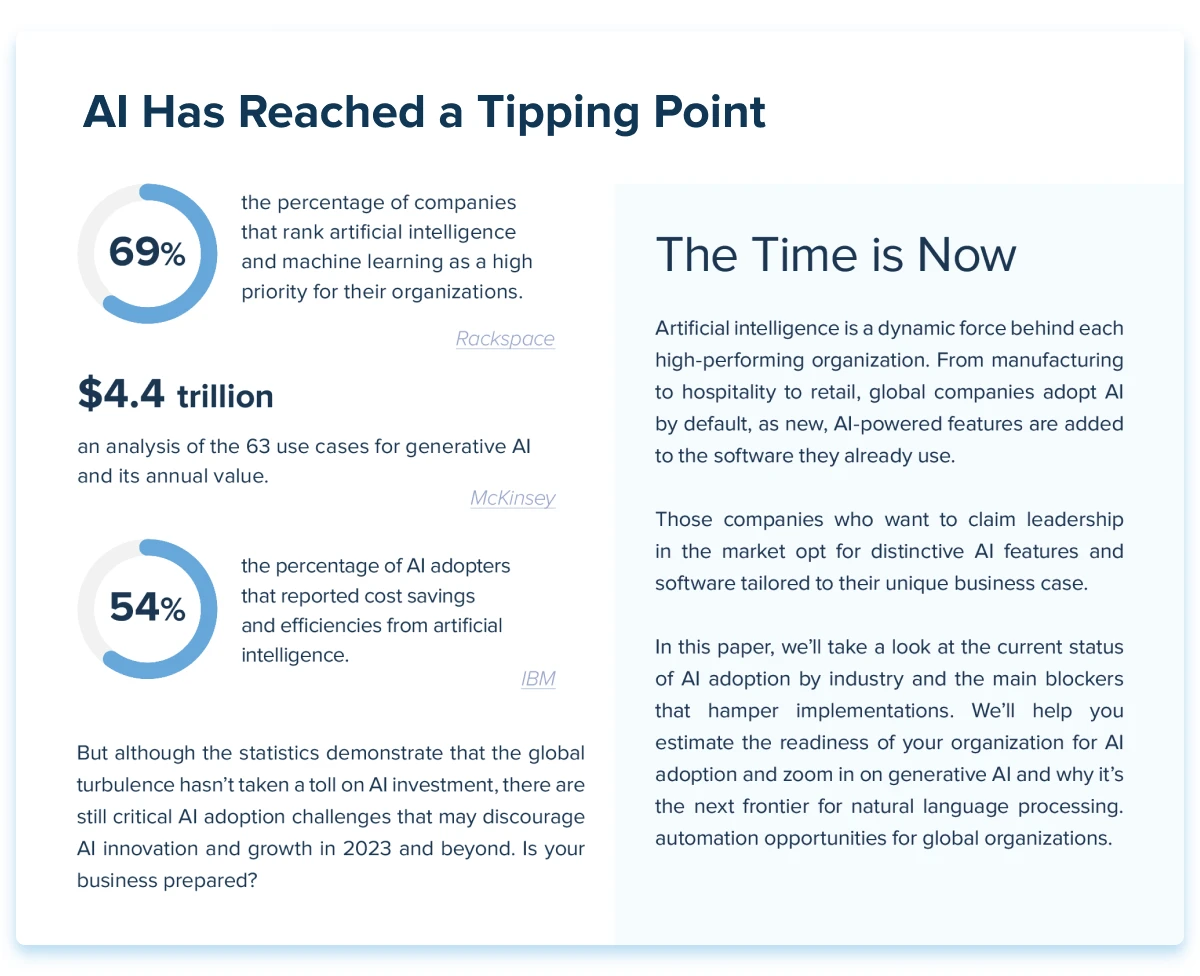
But although the statistics demonstrate that the global turbulence hasn’t taken a toll on AI investment, there are still critical AI adoption challenges that may discourage AI innovation and growth in 2023 and beyond. Is your business prepared?
The time is now
Artificial intelligence is a dynamic force behind each high-performing organization. From manufacturing to hospitality to retail, global companies adopt AI by default, as new, AI-powered features are added to the software they already use.
Those companies who want to claim leadership in the market opt for distinctive AI features and software tailored to their unique business case.
Converted by recession, normalized by value: Сurrent state of AI
Despite plummeting tech investment, AI-driven advancements continue to permeate all industries – and this shows no sign of changing. More than ever before companies feel the need to optimize and pivot, pinning their hopes on machine intelligence.
What specifically has changed in the technology trends of AI:
- As AI is becoming the table stakes for companies, the market for smart technologies is consistently growing. From startups to incumbents, companies of all sizes make artificial intelligence and its offshoots a crucial part of their innovation journeys.
- The recent convergence of cloud-based architectures and open-source AI toolkits has ushered in the democratization of AI technologies.
- Generative AI and foundation models have entered the landscape to make place for new automation capabilities and improve existing ones across a broad range of modalities.
In 2023, artificial intelligence has finally reached a tipping point, moving from being a speculative technology to a commonly used tool for organizations. According to AI adoption statistics, over 80% of enterprises now believe that artificial intelligence and machine learning are the key technologies to achieving business goals centered around growing revenue, increasing operational efficiency, and boosting customer experience.
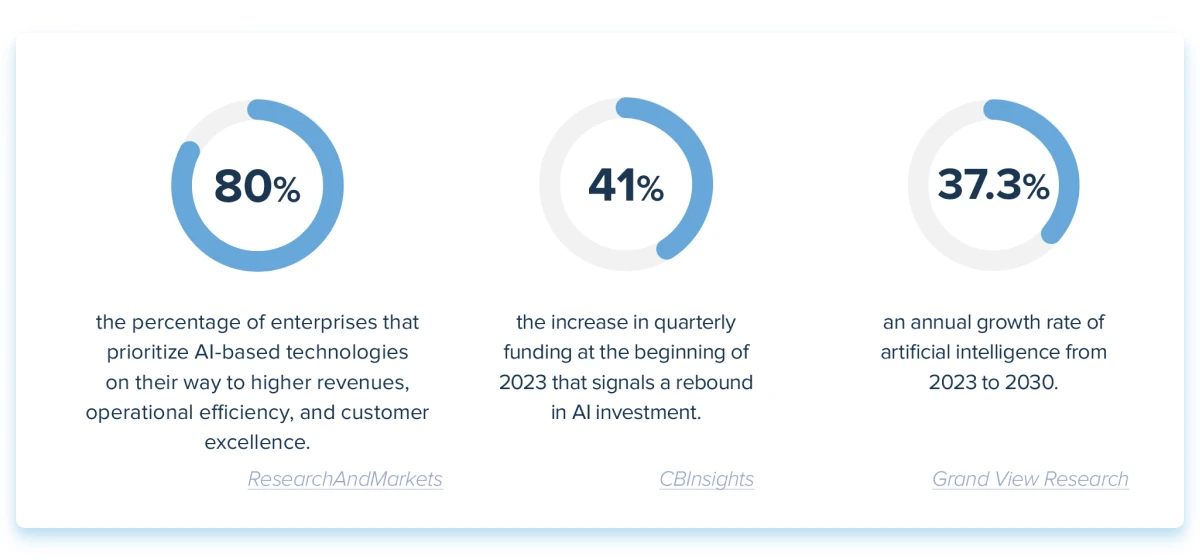
The application matrix of smart systems hasn’t experienced any major transformations. The overwhelming majority of adopters employ machine intelligence to optimize services and business processes along with improving customer experience. AI techniques have also become a part of the new product development cycle. Digital champions not only imply algorithms for analysis but also focus on the underlying data models.
Leading AI applications by year
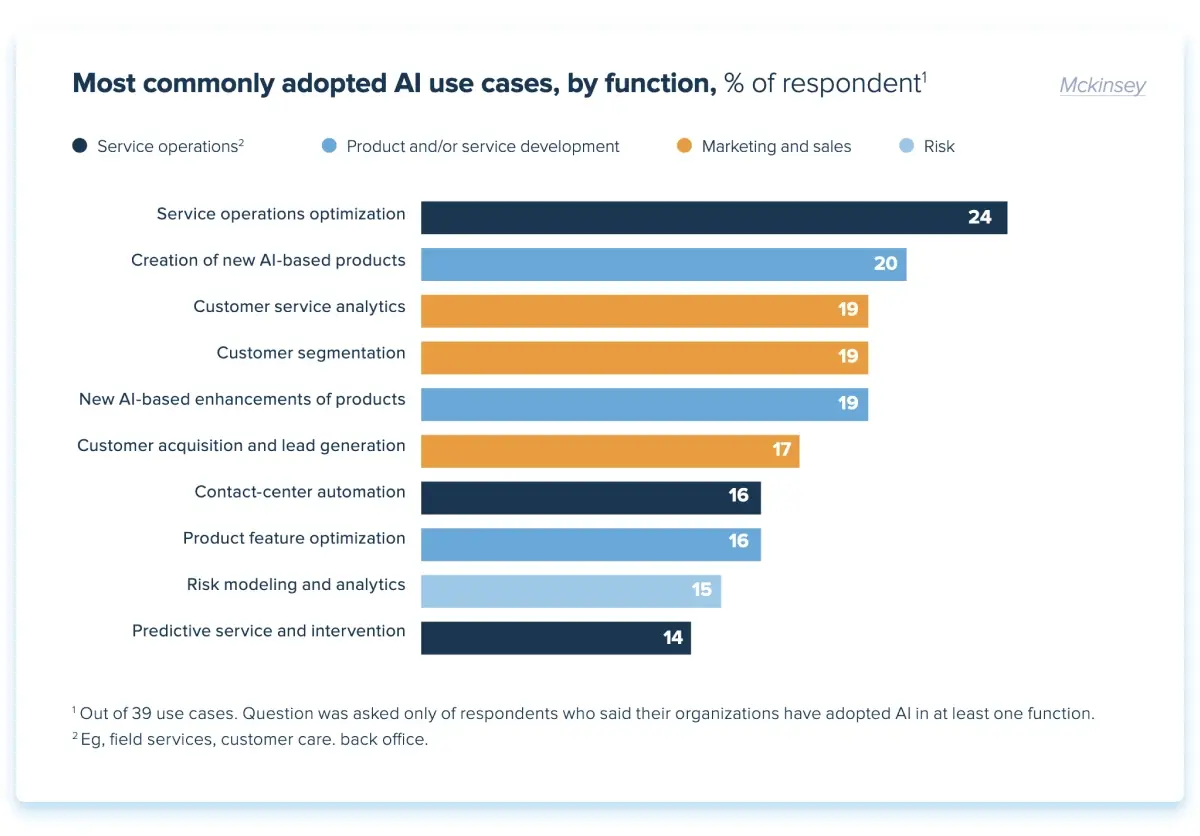

Generative AI: the new frontier of automation
The year 2023 has marked the increasing adoption of generative AI models, also known as large language models or LLMs. This year, we’ve seen SaaS LLMs increasing in popularity, along with the game-changing launch of ChatGPT. The number of companies using SaaS LLM APIs has grown by 1310% between November 2022 and May 2023.
Thanks to the exponential growth of Generative AI, executives were able to establish a more clear image of how generative AI can be deployed for their use cases. Information security, customer service, and marketing as well as innovation and product development are now seen as the strategic areas for the adoption of LLMs and Gen AI.
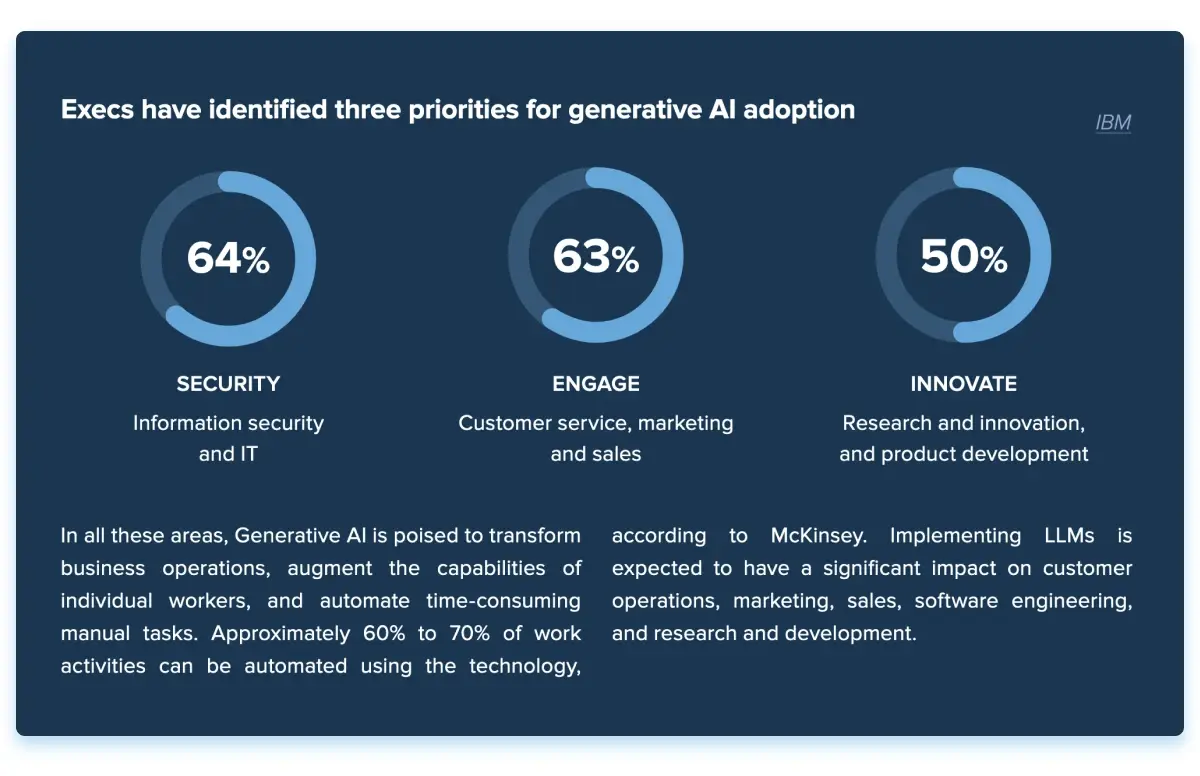
In all these areas, Generative AI is poised to transform business operations, augment the capabilities of individual workers, and automate time-consuming manual tasks. Approximately 60% to 70% of work activities can be automated using the technology, according to McKinsey. Implementing LLMs is expected to have a significant impact on customer operations, marketing, sales, software engineering, and research and development.
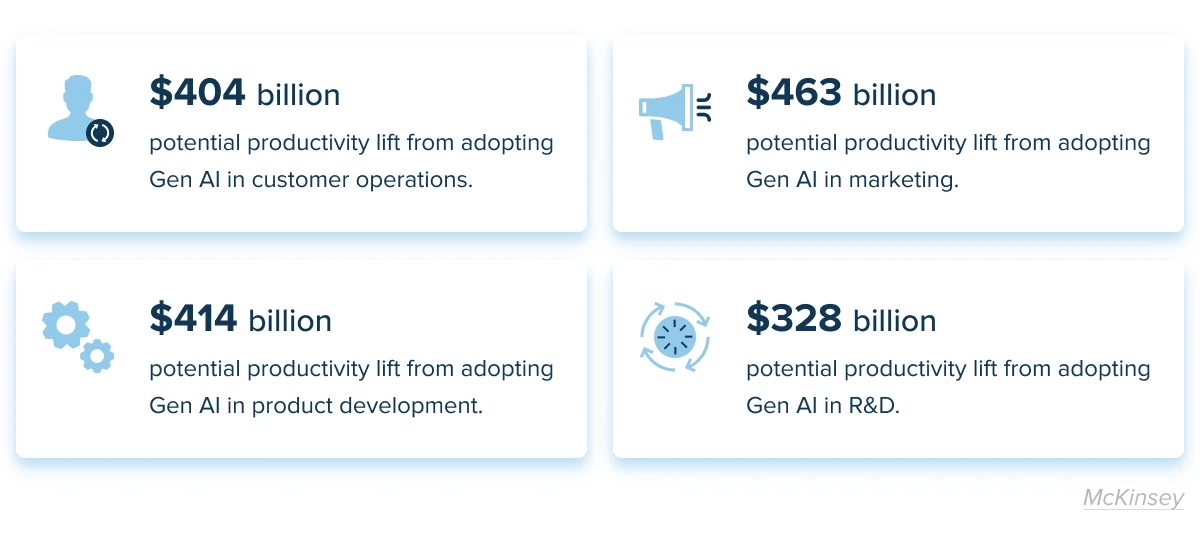 Now let’s take a look at the key Generative AI use cases across various industries:
Now let’s take a look at the key Generative AI use cases across various industries:
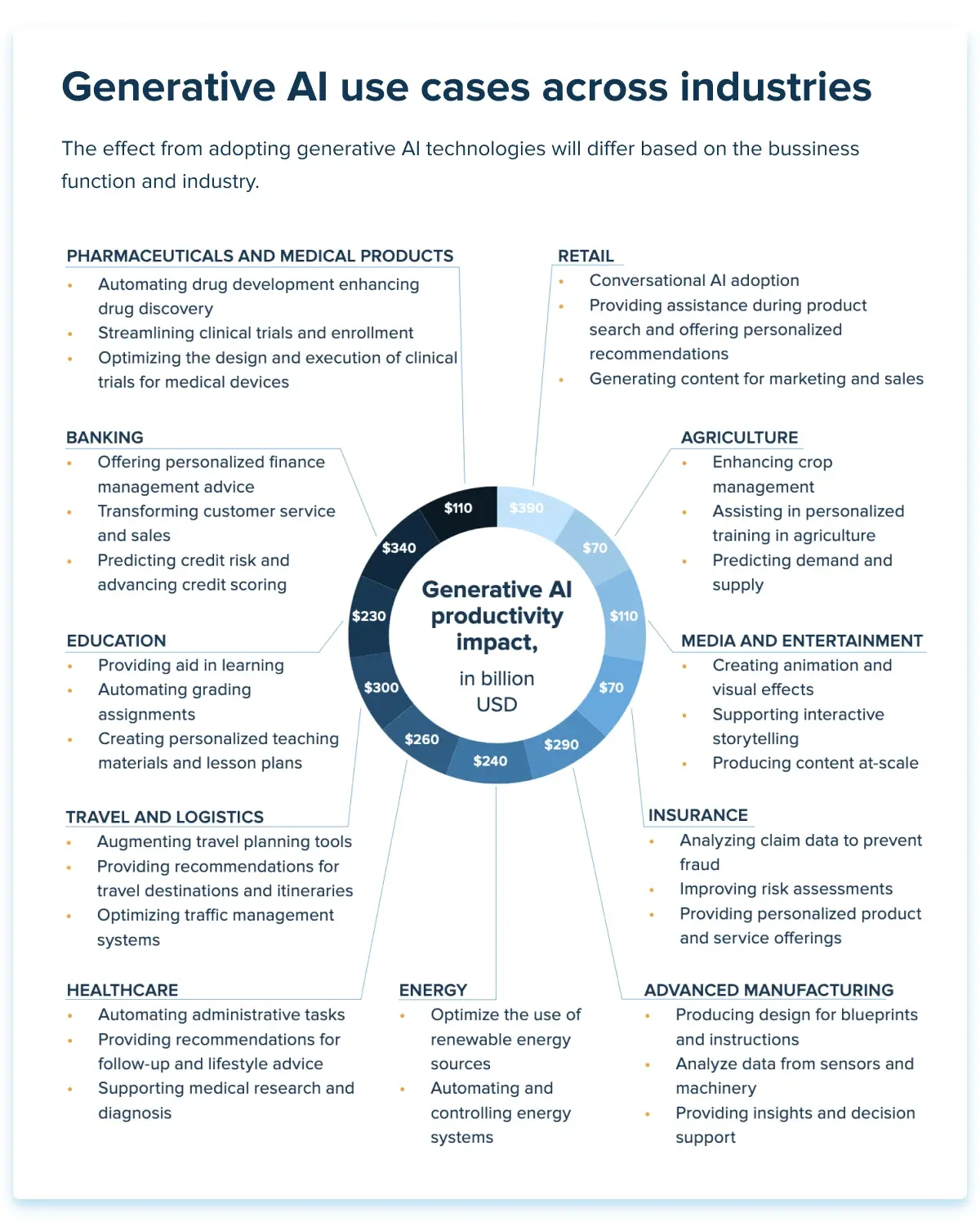
Realizing the potential: how to make AI work for your business
The impact of enterprise AI adoption can vary, depending on how well companies assess their AI readiness before investing in the project. To evaluate the degree of a company’s readiness, decision-makers should calculate their AI Readiness Index that depends on the organizational structure, business strategy, IT infrastructure, and data.
Moreover, AIRI rests on nine dimensions, as shown in the infographic below. Leveraging their enterprise data, infrastructure, and in-house AI talent, companies can build a strong case for value and make the most out of their AI investment.
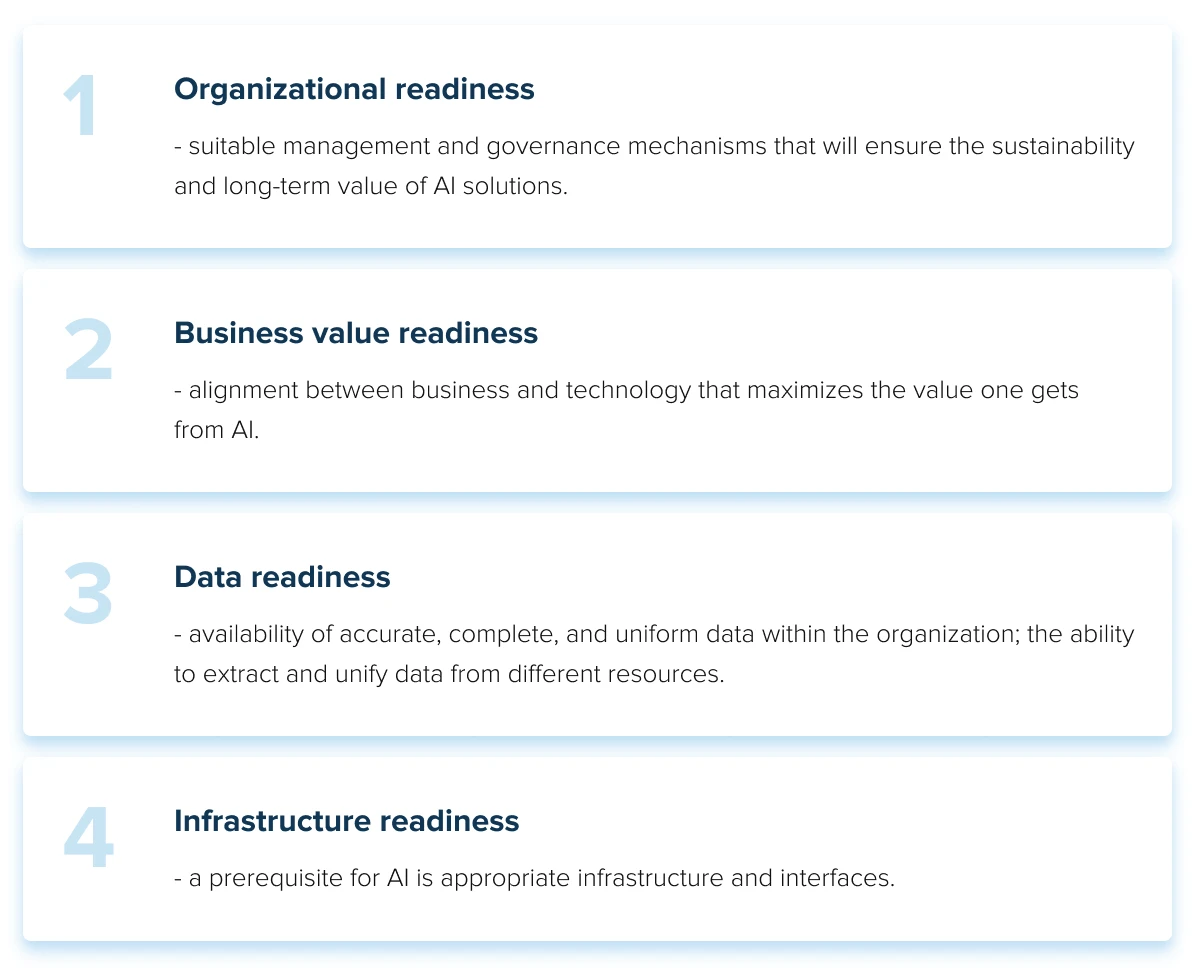
Estimating AI readiness: questions to ask for your company
To understand where they are on an AI journey, organizations need to see whether they have the right elements in place across skills and resources, infrastructure and technology, processes, and models. While short-term gains depend on infrastructure readiness, the overall success of AI adoption hinges on how well the company can adapt to the technology and how receptive it is to AI-driven transformations.
Organizational readiness
Questions to ask:
- Does your C-suite have clear accountability for data and AI strategy and execution?
- How do your organizational processes align with the new technology?
- Has your organization invested in upskilling current resources/hiring skilled resources?
- Does your security strategy take into account AI-based applications?
Challenges:
- Lack of in-house skills and AI expertise
- Outdated delivery frameworks that aren’t cut out for automation
- Data governance, compliance, and risks.
Best practices:
- Bringing outside experts to implement AI-based projects
- Adopting Agile and DevOps delivery practices to ensure continuous development and delivery and respond to unclear requirements and outcome
- Developing standardized data management practices
- Developing a comprehensive AI adoption strategy or turning to AI providers to get it worked out.
Business value readiness
Questions to ask:
- How does your company see the potential value of AI projects for your business?
- Have you defined and prioritized business cases for AI adoption?
- Have you identified clear, cost criteria for what constitutes the success of smart application adoption?
Challenges:
- Inability to define AI business use cases with measurable value
- Inability to calculate TCO, performance, and ROI for the project.
Best practices:
- Coming with a particular scenario, problem statement, or use case that employs AI methods and techniques
- Calculating the impact of artificial intelligence according to the AI maturity within a company (TCO – for early adopters, AI performance – for developed projects, ROI – for high performers)
- Turning to a technology partner to validate your business case for AI and the feasibility of your solution.
Data readiness
Questions to ask:
- Does your organization have a company-wide data platform that consolidates your data?
- Does the company practice strong data management and governance practices?
Challenges:
- Inability to integrate data from diverse sources due to siloed infrastructure
- Inability to prepare and clean data for AI development
- Lack of self-service access to data
- Lack of the right talent and expertise to manage the data value chain.
Best practices:
- Assessing the current data landscape
- Getting a clear understanding of the current data platform architecture, data security, and privacy policies in place
- Establishing consistent data management practices to ensure quality, free-flowing data
- Transforming isolated data platforms into a single source of truth
- Engaging data experts in building a robust data core, ready for artificial intelligence.
Infrastructure readiness
Questions to ask:
- Do you have a cloud platform and technology strategy that support your AI initiatives?
- Do you have the resources, processes, and tooling needed to develop, train, and operate machine learning models?
Challenges:
- Lack of interoperability between AI technologies and a legacy infrastructure
- On-premise, bulky systems
- Lack of the right talent and expertise to transform an organization’s IT infrastructure.
Best practices:
- Migrating to the cloud to build a flexible, scalable, and cost-effective infrastructure ready for artificial intelligence
- Adopting the MLOps approach to automate and gain visibility into all steps of ML system development, including integration, testing, releasing, deployment, and infrastructure management.
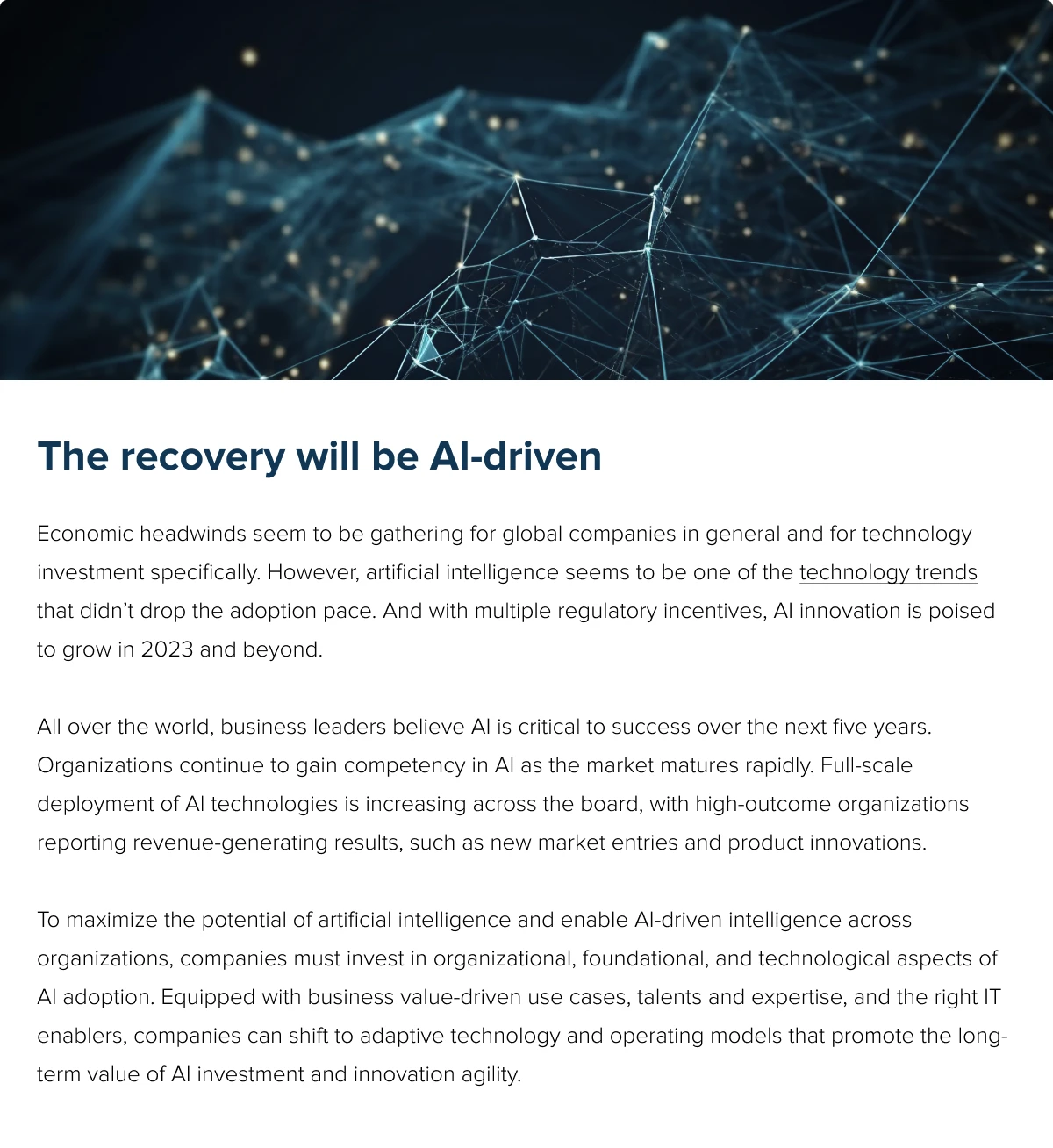
Develop custom AI solutions for your business needs
Want to automate routine tasks and improve operational efficiency? Get a consultation on AI solution development today.



